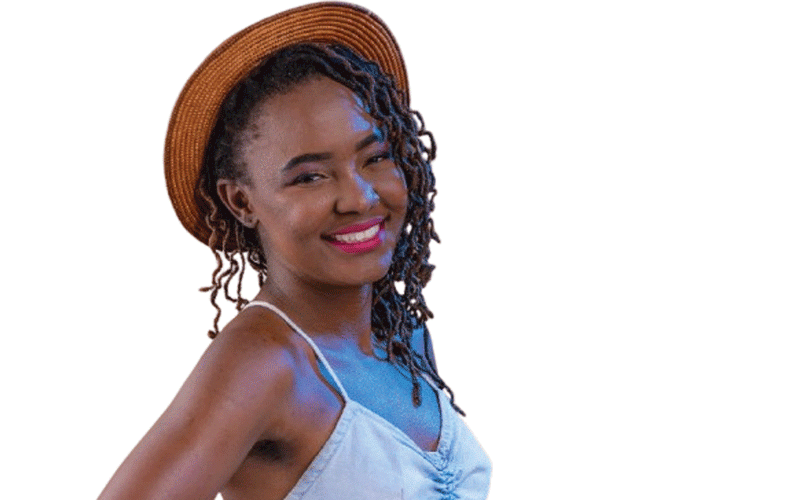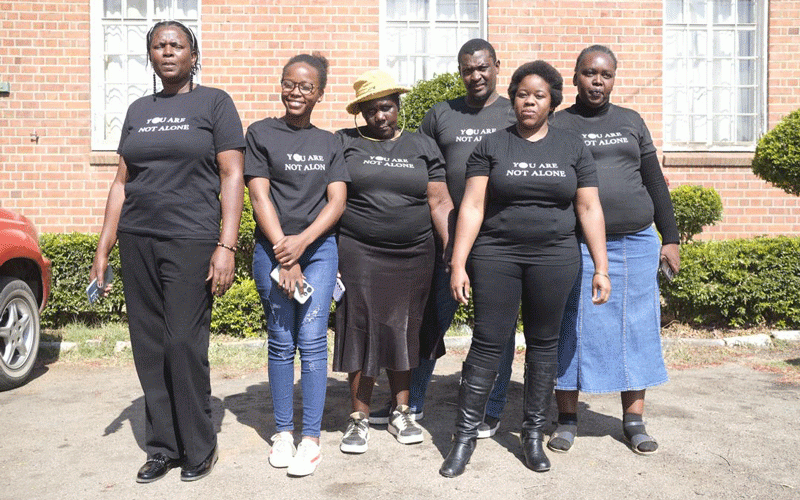
BY MOSES MAGUGUNYEKI
ZIMBABWE’S rural communities are enmeshed in traditional practices, rituals and attitudes, which prejudice women of their fundamental civil liberties, including their participation in politics.
Gender division of labour in these communities is rife and in most cases women are placed in the “kitchen” while men do all the “macho” jobs. An unequal dominant patriarchal value system is the order of the day.
Although gender sensitisation programmes involving traditional authority structures have been rolled out across the country with the aim of transforming rural communities to be insightful of gender equality and equity issues, women continue to suffer at the hands of some traditional and cultural practices.
Zimbabwe has ratified key women’s rights and gender equality instruments including the Protocol to the African Charter on Human and People’s Rights on the Rights of Women in Africa, the Convention on the Elimination of All Forms of Discrimination against Women, and the Beijing Declaration and Platform for Action.
These instruments form the milieu for women’s participation in politics and public administration in Zimbabwe.
Locally, the constitution and a number of policies provide for equality between men and women and specifically grant for gender balance and the need for equal representation in all institutions and agencies of government, even from the grassroots.
Despite efforts to bring about gender awareness at various levels in society, customary law has been allowed to reign over-legislative systems, leaving women playing second fiddle to men when it comes to leadership.
- Chamisa under fire over US$120K donation
- Mavhunga puts DeMbare into Chibuku quarterfinals
- Pension funds bet on Cabora Bassa oilfields
- Councils defy govt fire tender directive
Keep Reading
Statistics show that over the years, the representation of women at local government level continues to drop with the majority of these being recorded in rural areas.
According to a Gender Links analysis on the July 2018 election in Zimbabwe titled Gender in the 2018 Zimbabwe Local Government Elections, the representation of women in local government declined from 16% to 14% following that election.
Only 1 156 women (17% of the total) contested for local government seats.
It is against this background that in an effort to create an enabling environment for the attainment of equity and equality between women and men, simultaneously increasing the participation of women in public life, a cocktail of strategies has been put in place.
One such approach is the involvement of male traditional leaders in building the leadership capacity of women from grassroots levels.
“Involving women in our community programmes has brought a lot of positives in the village,” said village head Elliot Khumalo of Gonye village 28, Nkayi district in Matabeleland North province.
“Since I lead the crusade on gender equality, I have seen a lot of men embracing the idea and we are seeing more women taking up positions of leadership in all sectors under my jurisdiction.
“We now have a number of women in leadership positions at schools, churches and political parties, thanks to the community, which now understands the role of women in community development.”
Khumalo, who is a male gender champion working with local gender organisation Padare/Ekundleni, said he wants to see more women in his village taking up positions of authority at various levels.
“As traditional leaders, we are very influential and in that regard, I would like to persuade some women here to take up leadership positions at various levels, including in politics,” said the traditional leader.
He introduced a quota system in every development committee under his jurisdiction.
Headman Gudza of Buhera, Manicaland province is also among traditional leaders in the country advocating for gender equality.
“At first I did not accept that (women empowerment) because growing up I had the belief that women could not do what men do. “More so, I thought they can’t be leaders at any level,” said Gudza.
“There has been a lot of transformation in the village and we are hoping to spread the message to other communities outside Gudza. We now have women making up the school development committees at our schools – Bika and Netarava – and the community has accepted that.
“Five females and two males constitute my village court and we welcome the input from the females because we believe it’s progressive.”
The traditional leader said part of their training on gender issues involves making women aware of the legal system.
“Most women lack information, education and access to the legal system. So as a gender champion, my task is to transform my community to be more sensitive to women’s economic and social rights,” Gudza said.
“We now do gender sensitisation programmes whenever we gather as villagers. We get some time where we preach this. I am happy the community has embraced it.”
Priscilla Maposa, Gender Links Zimbabwe manager, told The Standard that her organisation was working on a number of programmes to help women to participate in politics.
Gender Links is a regional organisation that champions gender equality and justice, working in 15 countries in southern Africa.
“Gender Links has a number of programmes designed to help women participate in politics at local level. These include 50/50 local level campaigns that raise awareness in communities on the need for an increase in the proportion of women at this level,” Maposa said.
“We are holding political party dialogue meetings where we will lobby political parties to address the issue of inequalities in decision-making at political level.
“Over and above that, there will be interaction between the Women’s Parliamentary Caucus and local councillors through the Women in Local Government Forum to ensure cross-pollination of ideas on decision-making.”
Maposa said traditional leaders were critical when engaging communities on issues to do with gender equality.
“Through working with councils and through local level campaigns, traditional leaders are invited by councils to such meetings so that as the custodians of culture, they also need to change their mindsets and work towards promoting women’s political participation,” she said.
Women’s Academy for Leadership and Political Excellence (WALPE) programmes manager Batanayi Gwangwawa said they were working with traditional leaders to create a facilitating landscape for rural communities to be more receptive to gender equality and equity issues.
“We dialogue with male traditional leaders in order to have them support and provide solidarity for aspiring women leaders,” Gwangwawa said.
“The non-participation of women has to do with patriarchy and its system of male dominance so by educating men, we are dismantling this system and increasing women’s participation in politics.”
WALPE seeks to advance knowledge and deepen the capacity of women who want to successfully run for elected public office. Recently the organisation launched an ambitious programme dubbed the 2,2 Million Votes for Women from Women to canvass women voters and aspiring female candidates to support each other.
A female village head in Kondo, Chipinge’s ward 16, Zvironzo Muyambo, told The Standard that she was making efforts to get rid of some traditions and practices considered detrimental to the physical or mentally integrity of women that hinder their participation in politics.
“Starting from the rudimentary, we have embraced women’s participation in leadership. We have embraced part of our Ndau cultural aspects that we feel are progressive with the aim of pushing women up the leadership ladder,” said Muyambo.
“We have a quota system in every part of our village committees, including the village courts where both male and female preside over court sessions.”
Muyambo is an integral stakeholder in gender mainstreaming programmes in Chipinge where she works with a number of organisations, including the Platform for Youth Development Trust.
The Trust’s gender and advocacy officer, Cynthia Gwenzi, said part of their advocacy covers discouraging traditional norms, including social, economic, cultural and political practices which keep women out of politics.
“Our programmes start from the grassroots where we encourage women to take up positions in community programmes like school development committees. We have also embraced traditional leaders in our gender mainstreaming programmes and it’s paying off,” Gwenzi said.
She said they were working alongside three female traditional leaders from Chipinge in their programmes meant to increase women’s participation in politics, which was now bearing fruits.
“We have a number of projects aimed at encouraging women to participate in politics in Chipinge. “This is helping a lot as we witnessed the outcomes including in the 2018 election where we managed to come up with nine female councillors although we failed to have a female MP,” Gwenzi said.
Padare/Ekundleni programmes manager Paul Vingi described traditional leaders, particularly males, as pillars of transformation in as far as gender equality is concerned in rural communities.
“As Padare/Ekundleni, we engage boys and men on gender issues as we try to make them gender-sensitive and challenge the negative patriarchal norms that perpetuate the discrimination of women,” Vingi said.
“For traditional leaders, they are the custodians of society and culture, so their influence cannot be over-emphasised. They are respected by society and as such they are crucial in debunking some of cultural norms that tend to violate women’s rights”.
Self Help Development Foundation [SHDF] director Wadzanayi Vere said there was need for a re-orientation of the minds, perceptions, attitudes and value systems of both men and women to allow for the success of gender mainstreaming programmes.
“The involvement of men is very important given the supremacy of the male figure in society and the need for the men to take the initiative to carve ways and means for women to be treated as equals in politics and leadership as well as in life as a whole,” Vere said.
“Traditional leaders are a very strong institution of leadership in rural communities that commands authority and respect to this day. If they declare in their communities that women can and should take up positions of leadership, this will have a great impact to transform women’s leadership significantly.”
Vere said SHDF is engaging traditional leaders with the aim of increasing their knowledge and understanding of the constitution and the Traditional Leaders Act.
“These training sessions are exclusive to the traditional leaders so that we create a safe space to learn, debate and influence them to ensure that constitutional provisions are adhered to in the discharge of their duties. In addition, to ensure that clauses such as sections 17, 56 and 80 of the constitution are complied with,” she said.
“The impact of the sessions has been seen in their acceptance of women taking up more active roles in their courts or village assemblies, protection of women’s rights in judgements, among others.”
She said traditional leaders are involved in programmes such as She Can Campaign that seek to promote women’s leadership.











